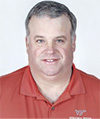One thing that no farmer ever wants to be called is lazy, and for the most part, we work our way well past that label in the eyes of the general public. I once had a friend who was contacted by a network news organization conducting a poll on work habits and work hours. About halfway through explaining his day, the interviewer proclaimed, “No one works like that!” and my friend hung up the phone on him.
While we do work a good bit harder than the average citizen, it can also be said that some chores can be more difficult to look forward to than others. One job I have a love-hate relationship with is mowing the yard. Mowing is not unlike writing; people do not like to write as much as they look forward to “having had written.” I love the way our farmstead looks after we have mown, but I cannot say I look forward to the next mowing.
My wife and I mow our yard, my mother’s home yard, the old dairy compound and a neighbor’s yard each week (sometimes twice a week). Running two 60-inch decks, it still takes us about two and a half hours to complete the chore. I have to say that one thing mowing does afford me is the opportunity to think … which can be good and bad. During this past week’s mowing, I was reminiscing about the evolution of the machines we used to use to mow the lawn, and how much they have escalated in size and price over the years.
As a young boy living in town, my dad had what seemed to me to be a mammoth-sized push mower. It had a cast aluminum deck, which was about the only weight-saving feature it boasted. I would guess the thing weighed over 200 pounds. When we moved to the farm in 1971, we were elevated into the realm of the elite rich … we bought a riding lawn mower. Up until that point, I can’t say I remember a single family that I knew who had a lawn tractor. In contrast, I can name on one hand the people I know now who own only a push mower, and most of them are self-propelled.
Our first mower was a source of fights in our household. My brother and I argued over who got the privilege of mowing the lawn. We had a new toy, and over the years, our toys grew, as did the area we covered. From that first 30-inch, 8-horsepower model (by the way, my uncle who had a 6-horsepower model thought ours was overkill), we advanced to a 12-horsepower tractor with a 44-inch deck, then 18-horsepower and a 50-inch deck, all the way to our twin 25-horsepower diesel, four-wheel-drive models of today with 60-inch decks.
As I mowed, I thought about how difficult it would be to return to the days of push mowing. The workout would be substantial, and maybe beneficial, but I am almost certain the job would only get done once … maybe.
Even if we do not shy away from hard work, there comes a time when our machinery offers us one thing that cannot be purchased – time. Time allows us to not only enjoy life a bit more, it also affords us the opportunity to plan our next tasks and move on to more profitable ventures. As much as I like a well-kept, freshly mown farmstead, the only time that such a thing is profitable is the day I sell it, which I am not planning on anytime soon.
Farm machinery has followed suit with riding lawn mowers: bigger, stronger and more technologically advanced. Farmers have followed suit as well. Consider an invention from my home state of Virginia: the McCormick Reaper. I have always been fascinated by how much the original harvesting process of that reaper in 1831 resembles still the grain table on a modern-day combine. What you may not know, however, is the motivation behind young Cyrus McCormick’s success.
Cyrus was a tall young man, especially for the early 1800s, and one chore he found exceedingly backbreaking was bending over to harvest wheat. Looking back at his success as a captain of American industry, it would be a stretch to call him lazy, but the avoidance of a dreaded chore led to an evolution in how we feed the world. He created the reaper as an escape to swinging a scythe, and the rest, as they say, is history.
To bring this rambling into perspective, we can all take a lesson from Cyrus McCormick and the Overbay lawn mower saga. First, hard work is best when it is also smart work. Chores of our youth and limited health benefits aside, it is unprofitable for any of us to spend days doing a job that has been reduced to a few hours of concentrated effort.
Second, we need to plan our methods as much as we plan our work. In 1973, my dad bought his first tractor that exceeded 100 horsepower. Some neighbors made fun of him, saying that he had no need of such a behemoth. Within five years, most of our machinery required that type of power to operate it both effectively and safely. Dad may have not needed the extra horses at the time, but without his foresight, our ability to grow the dairy operation would have been severely crippled.
Finally, we need to acknowledge our limitations. I often think about something I read years ago about growing old: Middle-aged is defined by when your yard turns into a field. I reckon old age is when that yard turns into a farm unto itself. There comes a time when we are all going to be too old, too sick or too dead to move on to the next chore.
We need to order our lives to be defined by more than our work. Lives need to be defined by how we treat others on our way to our accomplishments. The art of being a good cow dog lies not in the ability to work as much as in the wisdom of knowing when to lie still and wait for an opportunity. ![]()

-
Andrew Overbay
- Extension Agent
- Virginia Cooperative Extension
- Email Andrew Overbay










